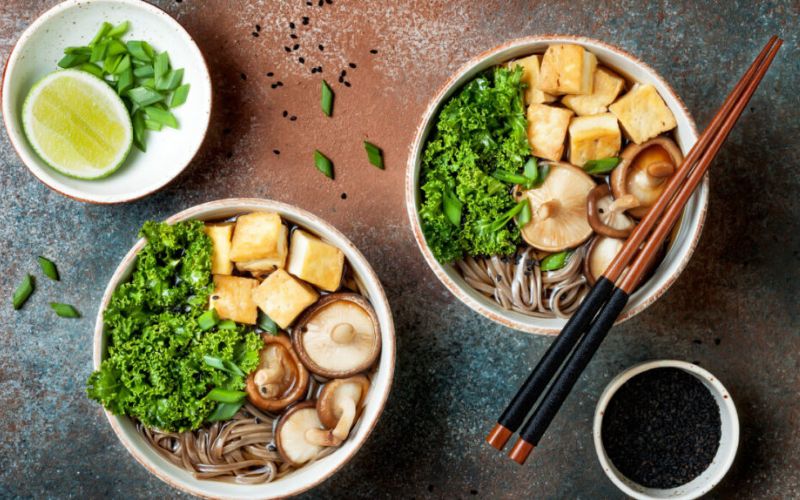When did you first get interested in tofu? Many people’s diets now include this plain white block, especially those that exclude animal products. But have you ever questioned whether or not tofu is indeed vegan? Let’s explore tofu and see whether it’s a good option for vegans by learning where it comes from, how it’s made, and if it has any health benefits.
Unveiling Tofu: A Brief Overview
Bean curd, or tofu, is a soy-based food that has been used in Asian cooking for generations. To make it, soy milk is coagulated and the resultant curds are pressed into blocks. These blocks are versatile because they take on the flavors and textures of whatever they are cooked with.
Is Tofu Actually Vegan?
As a vegan, it is your responsibility to make sure your diet is consistent with your morals. Since soybeans are not eaten by vegans, tofu may be the best option. But there are some things to think about:
Soy milk is coagulated using chemicals like magnesium chloride or calcium sulfate in the traditional method of making tofu. Although these coagulants do not come from animals, they could be used in some tofu preparations. Make sure your tofu is truly vegan by checking the label or asking the manufacturer about their methods of production.
Cross-contamination during processing raises additional safety concerns. There is a chance that some dairy residue will remain in your tofu if it was processed on the same machinery as milk and cheese. In order to avoid this, you should seek out vegan-friendly tofu manufacturers.
Third, unless otherwise specified, soybeans used to make tofu are likely genetically engineered. It’s important to look for non-GMO tofu choices if you share the ideals of some vegans who wish to avoid GMOs for ethical or health reasons.
To find vegan-friendly tofu, look for businesses that proudly proclaim their dedication to vegan principles. You may get tofu that is both convenient and morally sound since many respectable brands place a premium on ethical and plant-based production practices.
Why Tofu Is So Popular Now—Its Health Advantages
Putting aside the moral issues, tofu has several health benefits that make it a great complement to any diet.
First, it’s a great source of protein because tofu has a lot of it. Because of its high protein content from plants, it is a must-have for vegetarian and vegan cooking. Muscle maintenance, immune system function, and general wellbeing all rely on protein.
Tofu has a wealth of nutrients including calcium, iron, and magnesium. The proper functioning of bones, veins, and nerves all depend on these minerals.
Tofu is a heart-healthy alternative since it contains very little saturated fat. It’s a good source of omega-3 fatty acids and other good fats that are good for your brain and body.
Tofu’s adaptability to many cooking methods is one of its most impressive features. It’s versatile enough to be grilled, sautéed, roasted, or thrown into a smoothie. This adaptability allows for greater taste and textural exploration in vegan cooking.
Concerns About Tofu’s Effect On The Environment
Tofu may be good for you in many ways, but its effect on the planet has been a source of contention. Deforestation in tropical areas, such as the Amazon rainforest, has been linked to the soy business. Expansion of soy plantations has been linked to the degradation of natural habitats and a decline in animal and plant species.
Choose tofu brands that are committed to ethical soybean sourcing if you’re concerned about the environment. Look for certificates such as “Non-GMO Project Verified” or “Certified Organic,” as these are frequently signs of more eco-friendly methods.
Tofu’s Vegan Status: A Closer Look
In a nutshell, tofu may be deemed vegan so long as you stick to products that employ sustainable practices like avoiding cross-contamination and using only plant-based coagulants. It’s a staple in many vegetarian and vegan diets because of its high protein and nutritional content. When it comes to eating, like with anything else, knowledge is power. If you learn about how tofu is made and the ethical considerations that go into its creation, you can eat it with confidence without compromising your principles.
Asking, “Is tofu really vegan?” leads us to ponder the complexities of food production, ethics, and individual preferences. Whether you’re a tofu expert or just inquisitive, you should now be able to make a decision about tofu that fits with your values and provides what your body needs.

